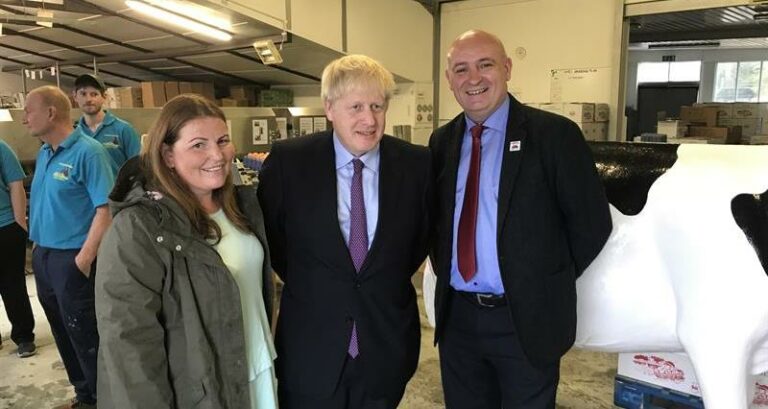Farming unions have responded to the Government’s plans to replace the controversial Irish backstop in Brexit negotiations with the European Union.
The Ulster Farmers’ Union said that while it is encouraging the government is pursuing a Brexit deal, the proposals as they stand do not address all its concerns, particularly around tariffs and customs.
The Government has proposed Northern Ireland would stay in the European single market for goods but leave the customs union.
UFU president, Ivor Ferguson said, “We are committed to assessing the impact for farmers of all plans and believe these proposals represent a useful starting point for further negotiations.”
The UFU accepts that the UK will leave the EU but maintains that this must be an orderly and well managed process. It has consistently said that any deal must allow free and frictionless trade to continue north/south and east/west and that a no-deal Brexit would be disastrous for Northern Ireland’s family-run farming businesses.
“The proposed all island regulatory zone would help facilitate these crucial trading relationships. However, more clarity is needed about how the four year Stormont consent process would work as this rule has the potential to put the industry in a prolonged cycle of uncertainty. Equally important is a commitment from the government to protect our standing in the UK’s internal market. We need concrete guarantees that access to the UK market will not be affected,” said Ferguson.
The UFU warned of the dangers if customs and tariff barriers add costs and undermine Northern Ireland’s competitive position.
“From 2021, WTO rules and tariffs will apply for all exports from NI unless the UK has a Free Trade Agreement in place. This does not give the certainty around tariff free access that we require. It is essential for the livelihood of family-run farming businesses that this is confirmed,” said Ferguson.
The UFU said it was not yet convinced that the plans on the table, especially in terms of tariffs and customs, represent a workable solution for agriculture and food. “We want to see concrete evidence that would reassure us about the impact on farm businesses and farm families. That reassurance is not yet there in these proposals, but we are hopeful that they are only a starting point in the negotiation,” said the UFU president.
The UFU has sought the views of its policy committees as part of its analysis of the proposals. Discussions continue and the proposals, or any updated versions, will also be brought to the UFU’s overarching Executive committee for consideration.
The NFU’s initial response on the government’s proposals to replace the Irish/ Northern Irish ‘backstop’ is as follows:
“The NFU has argued strongly that we cannot leave the EU without a deal if we are to avoid significant damage to UK farming. While we welcome the fact that the government is continuing to pursue a deal with the EU that would secure an orderly Brexit, it is getting very late in the day and it of course remains to be seen whether the latest proposals will lead to a much needed breakthrough in negotiations.
“We will now look closely at the proposals themselves, and of course at the EU’s response and any counter-proposals. It is important that they strike the right balance between maintaining as free and frictionless trade as possible with the EU while respecting the Good Friday Agreement, and protecting the integrity and smooth functioning of the UK’s internal market.”


